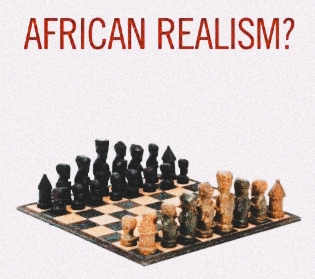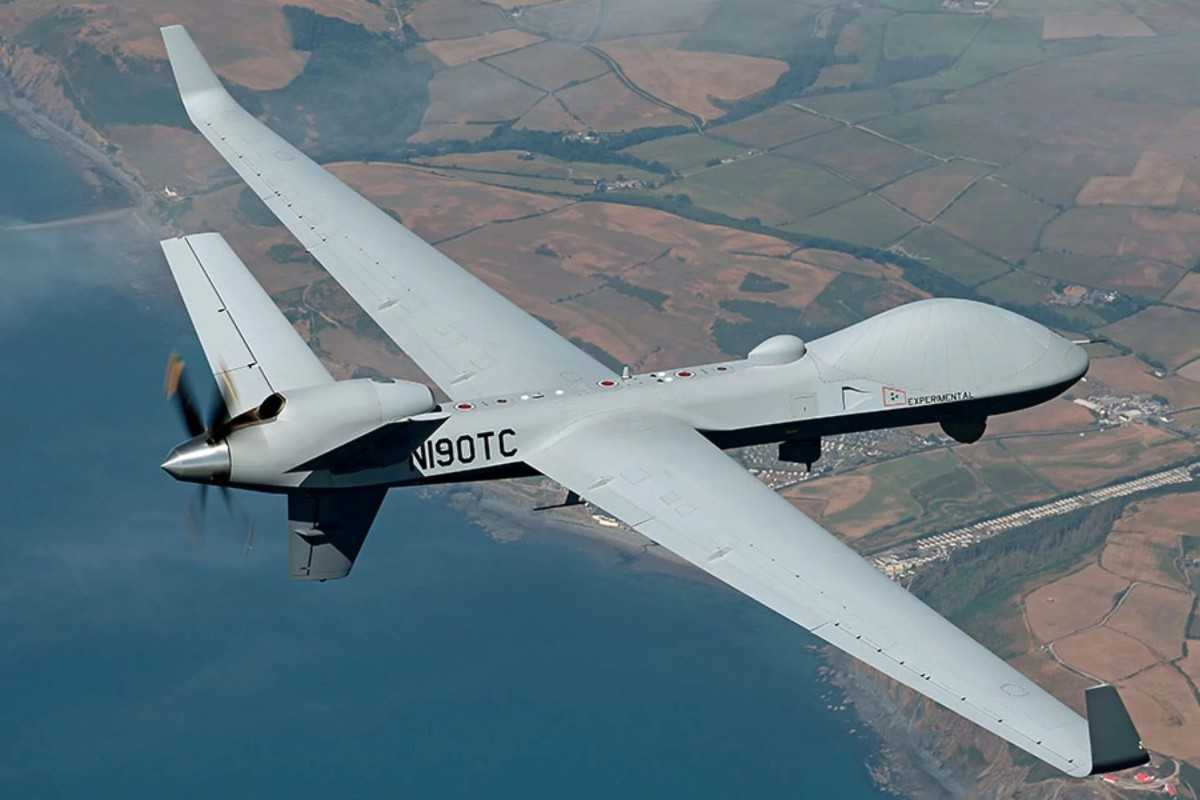Africa and the world from past to present in the context of realism. The African continent has attracted the attention of every state since the past, especially with its natural underground resources. Increasing colonialism with geographical discoveries led the great powers of that era to the African continent.
This colonialism, which began with natural resources, then penetrated other areas, colonizing and plundering this continent. During the Cold War, this competition was also reflected in the African continent, as the two superpowers, the United States and the Soviets, competed in every region and every area.
Read more: Middle East Turmoil : Israeli-Palestinian conflict
Africa also witnessed struggles between the two sides during the Cold War period. At the end of the Cold War, interest in Africa briefly declined. Today, Africa has become the focus of great powers again due to its geopolitical and strategic position and the presence of its natural resources. The situation in Africa brings to mind the theory of realism. Conflicts of interest and rivalries in which Africa is the scene will be divided into the pre-Cold War period, the Cold War period, and the post-Cold War period and explained by the theory of realism.
Firstly, the search for new trade routes dominated the world, from geographical discoveries in the pre-Cold War period. The discovery of the Cape of Good Hope on the African continent has put Africa is an important and strategic position.
Read more: Afghan Air Force: Capabilities and Challenges
The priority and importance of the national interests of states have required them to make rational decisions in foreign policy. Therefore, a new area of conflict has emerged with the urge to dominate trade routes on the African continent and seize Africa’s strategic regions and natural resources. European states, especially the great powers of that era, wanted to keep this place under control and gain power. According to the theory of realism, the primary purpose of states is to exist and maintain this existence.
They will realize this purpose of existence as having power. States that feel their security is in danger will maintain their security by creating a unity of power, that is, a balance of power against the superior state. For this reason, various coalitions were also established against France, which was the great colonialist and great power of the period.
Along with the Industrial Revolution, the search for raw materials triggered the understanding of colonialism and states found the raw materials they were looking for on the African continent. The struggles of states are due to the fact that states are competitive and aggressive, and the international system is anarchic.
After colonialism, looting, and heavy destruction in the nineteenth century, it has been seen that these states still maintain their respective and aggressive positions on the continent since the past.
During the Cold War, with the weakening of the European States with the Second World War, their dominance in Africa also weakened. The two superpowers, the United States and the USSR, who came out of this war with a great force, increased their influence and movement in Africa, as in all areas and every region.
Read more: Will Saudi Arabia end war in Yemen?
America supported dictatorial and repressive regimes that it saw as racist and close to its line to eliminate the Soviet threat across the continent. With the end of the Cold War, U.S. interest in Africa has almost come to a standstill. The United States, the only sovereign superpower after the end of the Cold War, abandoned the racist dictators it supported economically and politically for many years after the collapse of the Soviets and laid the groundwork for their legitimacy.
In this sense, states that want to increase their power, that is, the United States and the USSR will want to expand their sphere of influence, so their national interests have clashed. It is also a fact that the increase in power and influence is being tried to prevent. The security dilemma is quite common during this period.
Finally, in the post-Cold War period, the United States lost interest in the African continent because there was an uncompetitive atmosphere with the dissolution of the Soviets and the subsequent decline of the Soviets ‘ interest in the African continent. China has taken steps to fill the gap in the African continent. Thus, realism began to feel its influence again effectively in this region.
According to realism, each state has its interests, and states make the necessary moves to protect and win these interests. China’s coming to the African continent and playing an active role here strengthens this approach. After China’s active contribution, the United States and Russia are turning their direction to Africa in line with their national interests, preparing a highly competitive and turbulent environment on the African continent.
The fact that Africa has rich natural resources, is in a strategic and geopolitical position, is attractive to other states, especially great powers, and is a focus where national interests can be achieved. It is said that the intersection of the national interests of each country is natural wealth. States are not equal in the anarchic international system. The great powers are superior to other states and are seen as the most important actors.
Read: Eurofighter Typoon: Detailed Insights
Small states and smaller states are important secondary actors. It is clear that China, the United States, and Russia, the great powers, especially within the framework of Africa, are not on par with the independent states of Africa. China has been adopted by African states, strengthening its presence on the African continent. For this reason, China has found more areas for action and meets its national interests. China’s growing influence and persistent moves are perceived as a threat by other states.
According to realism, states that want to increase their power want to increase their sphere of influence, and therefore the national interests of states conflict. Therefore, China’s moves pose a threat to themselves and their interests, as states want to increase their power and create influence. Because China has begun to turn into a strategic position as well as natural resources by expanding its active African policy. This perceived threat can be overcome by the state’s possibilities and capacities or the balance of power, as in the theory of realism.
China has the opportunity to control the continent’s natural wealth by making economic and trade agreements on the African continent. In return, it contributes to infrastructure work and provides credit support. Given that states trying to achieve maximum power are trying to prevent achieving their goals, the economic and political opening of the United States on the continent during the Bush-era can be considered as a move to curb Chinese influence.
Although Russia, unlike the Soviets, is a great power by following African policy and applying soft power in the background, it does not have a level to compete with China and the United States. Russia’s interests in Africa, unlike others, are to find support that can prevent isolation in economic relations. The United States, on the other hand, has taken advantage of the presence of terrorist organizations in Africa to achieve African wealth in a security and military context. Both Russia and the United States use private military companies extensively, especially on the African continent, to protect their national interests.
The United States legitimizes its desire to be in Africa through its AFRICOM and counterterrorism activities. In the Trump era, both Russia and China have had the opportunity to have more say over the region as the United States has reduced its influence in Africa. Russia became Africa’s largest arms supplier by establishing a naval base, while China established its first overseas base. These states both increase their power and achieve their interests in the context of realism.
As a result, the geopolitical position of the African continent includes its presence between the continents and its position on important trade routes, including maritime trade. Dec. In addition, it is very important that there are many natural resources and Natural Resources, and that African countries are too small and weak states to control themselves, and that other states shift their focus here.
In the pre-Cold War period, Africa was colonized by the great powers of Europe, losing its identity and wealth. In the Cold War, the conflicts of the United States and the Soviets moved to Africa, as they did all over the world. The African continent has continued to meet the interests of states in the past, and today it has increased even more. With China’s active inclusion in Africa, the balance has changed and China has begun to be perceived as a threat by other states.
However, instability and various security problems have emerged in Africa, partly because other states, as well as the United States and Russia, have made their presence felt. The United States, which competes with China in political, economic, and many fields, has lagged behind its rival in Africa. The United States has again increased the importance and priority it places on the continent to eliminate China’s growing hegemony in Africa and its dominance over strategic natural resources. According to them, all countries consider their national interests first.
The national interest is important and effective for foreign policy decisions. Ensuring the national interest also strengthens this country. All great powers want to dominate the world system. To achieve this goal, they have to be strong.
Author: AYŞE SELCAN AKIN

She is studying in the department of International Relations at Hacettepe University. She also attends the department of Local Government at Anadolu University. She is an intern at the Foreign Policy Institute. She speaks advanced English, intermediate German and Korean. She is interested in the fields of Security Studies, Foreign Policy and International Law.
- Global Defense Insighthttps://defensetalks.com/author/umair/
- Global Defense Insighthttps://defensetalks.com/author/umair/
- Global Defense Insighthttps://defensetalks.com/author/umair/
- Global Defense Insighthttps://defensetalks.com/author/umair/













